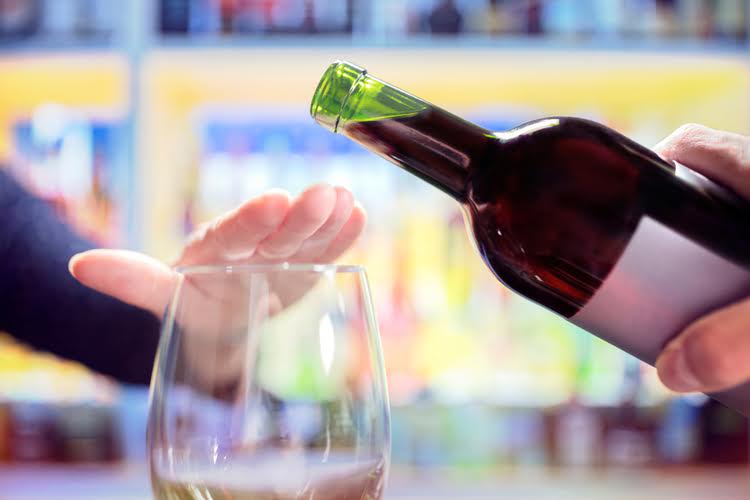5 Drinks to Avoid When You Need to Hydrate
While it may seem like a simple task, this is one of the most common causes. Keeping track of alcohol intake and avoiding excessive drinking can help prevent dehydration and reduce the negative health effects of alcohol consumption.This is an important long-term strategy. Drinking alcohol at a slower pace can reduce its dehydrating effects. Alternating alcoholic drinks with water or other non-alcoholic beverages can also help maintain hydration levels.
- The best hangover electrolytes contain at least 1,000 milligrams of potassium and no more than 40 milligrams of sodium.
- When vasopressin is suppressed, you lose fluids by peeing more, which leads to dehydration.
- Drink plenty of plain water, an electrolyte drink or sports drink, and eat water-rich, easily digestible foods.
- A vodka with soda is likely more hydrating than just a shot of vodka because you’re consuming more fluids from the soda.
- The idea is based on the findings of a study from 1928 that looked at three people.
How do you rehydrate after drinking alcohol?
Research has not found a correlation between the extent of electrolyte disruptions and the severity of hangovers, or the impact of added electrolytes on hangover severity. In most people, the body will quickly restore electrolyte balance once the effects of alcohol subside. Dehydration caused by alcohol can also have long-term effects on the body. Chronic dehydration can lead to kidney damage, liver damage, and other health issues.
Kidney damage:

However, you may be able to minimize its severity by following a few simple tips. Still, multiple glasses of milk a day probably isn’t the best move — especially for our lactose-intolerant friends. In addition to drinking water, Thomason offers some alternative Top 5 Advantages of Staying in a Sober Living House avenues for staying hydrated. “All fluid counts toward your hydration status and total fluid intake for the day,” Thomason says. “Even the fluid intake we get from fruits and vegetables and food counts towards our total fluid intake for the day.”
- Some research suggests that consuming 500 mg of caffeine (equivalent to about five 8-ounce cups coffee) may increase urination, but probably not to the point of dehydration.
- As well as chronic illnesses, drinking too much alcohol can also have a range of short-term risks such as accidents due to impaired judgement, balance and vision.
- Liquor and wine also have a higher amount of alcohol by volume (ABV) than beer, contributing to a potentially greater risk of dehydration from these beverages.
- Electrolytes are minerals in the body that help regulate fluid balance.
- Consuming alcohol on an empty stomach causes rapid intestinal alcohol absorption, amplifying the dehydrating effects of alcohol.
Your Hydration Game Plan (while drinking alcohol… and after)
- What’s more, says Lubeck, is that drinks like soda have been shown to increase oxidative stress on the kidneys—organs that play an important role in your hydration status.
- Alcohol can even get into the lungs and be released when you exhale.
- Occasional alcohol-related dehydration tends to manifest in symptoms commonly known as a hangover and can typically be managed without medical attention.
- It’s important to ask your healthcare provider about the medicines you take and whether they can increase your risk of dehydration.
Salty foods, like chips and other snacks, are also risky when it comes to staying hydrated. Some cocktails can take a toll on your hydration because of additional ingredients. “If you pair alcohol with another diuretic substance such as caffeine, you may naturally urinate more and become even more dehydrated,” Dr. Alexa Mieses Malchuk, M.D., a family physician, tells Bustle.
Does Dehydration Make Hangovers Worse?
Some people take over-the-counter pain relievers (often acetaminophen) before going to bed to minimize hangovers. It is important to recognize that the combination of alcohol and acetaminophen can be toxic to the liver. Like alcohol, certain over-the-counter pain relievers, including aspirin and ibuprofen, can increase acid release and irritate the lining of the stomach.
Reaching for hydrating beverages is the best way to alleviate a hangover’s unpleasant effects — but not every liquid fits this bill. Dehydration can also impact heart function, increasing the risk of heart attack or stroke, especially in people with pre-existing heart conditions. Alcohol-induced dehydration can also decrease reaction time, making it more challenging to respond quickly to unexpected situations, such as sudden stops while driving or avoiding obstacles. Dehydration can impair physical coordination and reaction time, leading to an increased risk of accidents, such as falls or injuries.
But even today we still don’t fully understand how alcohol causes this excessive urination. In Shakespeare’s play, Macbeth, the porter says that alcohol promotes “nosepainting, sleep and urine”. That’s why it’s so important to drink responsibly and have https://theohiodigest.com/top-5-advantages-of-staying-in-a-sober-living-house/ a hydration game plan in place (more on that later) for nights when you indulge. The good news is you can reduce these side effects with a game plan to replace the lost fluids. Thirst plays a central role in fine-tuning that balance, she explains.
Why do I feel weird for several days after drinking?
With impaired antidiuretic hormone, you’ll notice more trips to the bathroom and less concentrated urine. Essentially, expelling much-needed fluids that your body wouldn’t normally waste. Let’s talk about dehydration from alcohol — why it happens, how to avoid it, and the immediate remedies you can use to avoid a hangover. The best way to quickly rehydrate is to regain the minerals flushed out due to excessive urination. One large study found excessive alcohol consumption is linked to accelerated facial aging. “Stronger alcohol might provoke more dehydration, but it truly has not been studied enough to know for sure,” she says, pointing to a 2017 study published in Nutrients.
